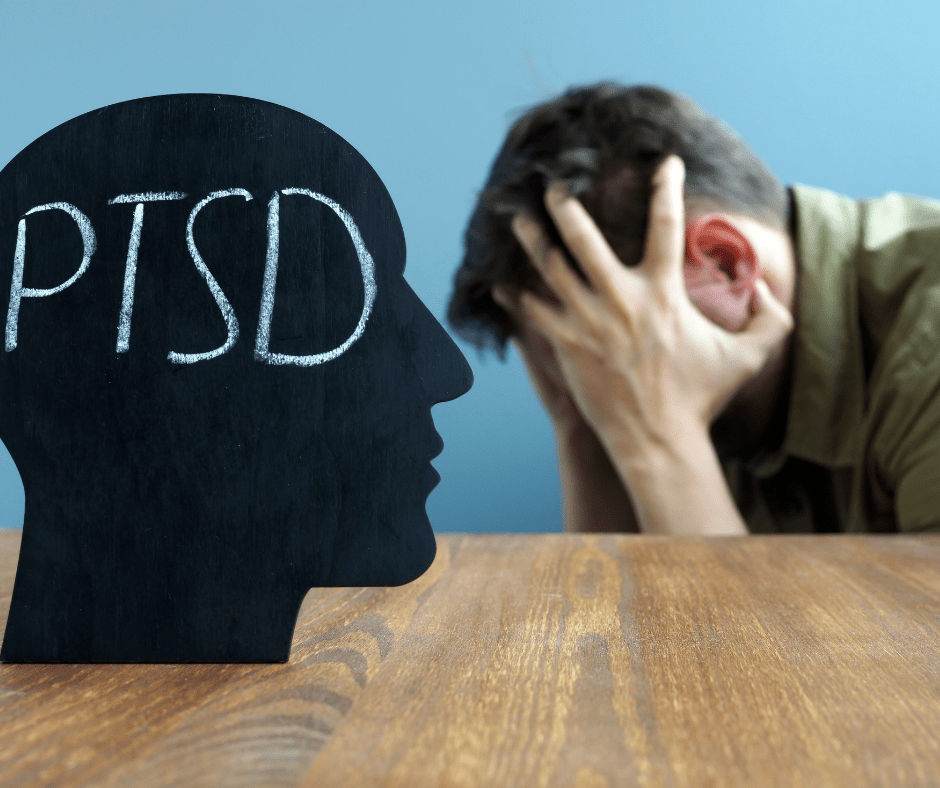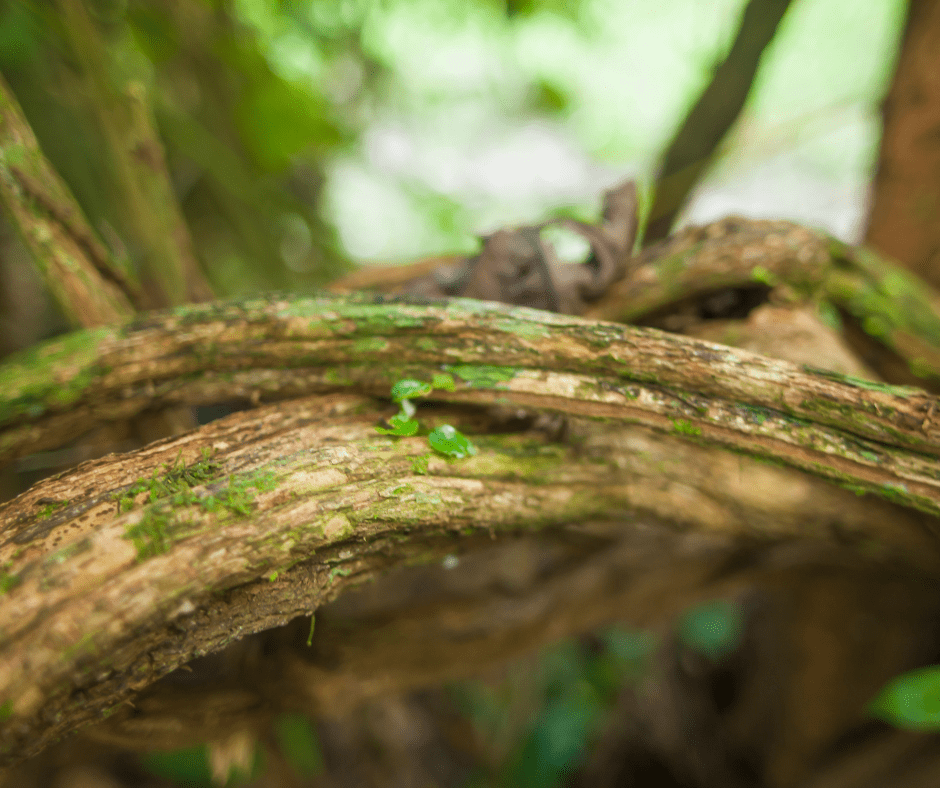Key Takeaway:
- Ayahuasca has the potential to help with PTSD symptoms: Ayahuasca, a traditional plant medicine, has been shown to have positive effects on anxiety and depression, which are common symptoms of PTSD. Studies suggest that it may help individuals process traumatic experiences and provide spiritual healing.
- Research on Ayahuasca and PTSD is limited: Although there have been a few studies on the use of ayahuasca for PTSD, the research is still in its early stages. More research is needed to fully understand the effects of ayahuasca on PTSD and to determine appropriate dosages and administration methods.
- Ayahuasca treatment for PTSD should be approached with caution: Ayahuasca can have potentially harmful side effects, particularly for those with certain medical conditions or taking certain medications. It is important to seek guidance from experienced practitioners and medical professionals before considering ayahuasca treatment for PTSD.

PTSD Overview: Definition and Symptoms
PTSD is a condition that affects millions of people globally, and while there are different support systems available, there is still no one-size-fits-all solution. In this section, I will provide an overview of PTSD, its symptoms, and how they impact someone’s everyday life. Understanding PTSD is essential to determine whether Ayahuasca helps with its treatment. Throughout this sub-section, I will cover the causes, statistics, and the impact of PTSD on people’s quality of life. Ultimately, having a clear picture of PTSD and its symptoms can help determine if Ayahuasca is an effective treatment.
Understanding PTSD and its Symptoms
When we talk about PTSD or Post-Traumatic Stress Disorder, we refer to a mental health disorder that affects various people who have undergone a traumatic event. Understanding PTSD and its symptoms can be the first step towards helping someone who is suffering from it. One of the fundamental reasons behind the working of PTSD is the fear response, which remains triggered even after coming out of danger.
People with PTSD have a higher level of stress hormones such as adrenaline and cortisol in their body than those without it. They may experience nightmares, flashbacks, and severe anxiety as some of the most common symptoms. Additionally, depression, substance abuse disorder, and suicidal thoughts are also linked with PTSD.
While understanding PTSD and its symptoms are important to help know what one is dealing with, it’s necessary to learn about other lesser-known facts that could help you understand it better. For example, PTSD symptoms might not appear right away but can take weeks or months to surface. Even children can experience post-traumatic stress symptoms after experiencing something traumatic.
Pro Tip: If you know anyone who has been diagnosed with post-traumatic stress disorder or is suffering from symptoms similar to it, be patient with them. They might need time to heal and feel safe again.
Ayahuasca – a traditional medicine used by indigenous people for centuries – may help individuals suffering from PTSD. The plant-based drink works at a profound level in the brain and helps patients process trauma in ways they might not be able to do so under normal circumstances. But before jumping into its effectiveness for treating these disorders let’s get insights on Ayahuasca & PTSD together. Book An Ayahuasca Retreat Ayahuasca Is A plant-based medicine that may have side effects. Make sure and do independent research before attending a retreat.
Ayahuasca and PTSD: An Overview
As someone who has struggled with PTSD, I know firsthand the difficulties of living with this condition. That’s why I was blown away when I first heard about ayahuasca, a powerful plant-based medicine that has been used for centuries by indigenous communities in South America.
In this part of the article, we’ll take a deep dive into the world of ayahuasca and PTSD. We’ll start off by exploring what ayahuasca is and how it’s used as a treatment. Then, we’ll delve into how ayahuasca can potentially help with PTSD, backed by recent research and anecdotal evidence. This is a topic that’s gaining a lot of attention in scientific circles, and for good reason.
Introduction to the Ayahuasca
The Ayahuasca treatment is a form of traditional plant medicine that has been used for centuries in the Amazonian region. The practice involves drinking a tea made from the Ayahuasca vine and other botanicals that contain psychoactive properties.
Introduction to the Ayahuasca Treatment – At its core, Ayahuasca is believed to provide healing not only to the physical body but also to the mind and soul. The treatment works by inducing altered states of consciousness that can lead to profound spiritual experiences and insights.
The reason behind how Ayahuasca works lies in its chemical composition. The primary active constituent of Ayahuasca is DMT or dimethyltryptamine, which is known for producing intense psychedelic effects on the brain. However, DMT alone would be broken down by enzymes in our bodies before it could have any effect. It’s why it’s ingested with an MAOI which ensures that DMT remains active long enough to enter the bloodstream.
Ayahuasca treatments may differ from one shaman/curandero/curandera/ayausca ceremony leader/healer (terms vary depending on different places) to other as it has been practiced traditionally with little standardization across different indigenous cultures but all follow common practices such as dietary restrictions and behavioral guidance before, during, and after consumption.
Studies have shown that ayahuasca can reduce depression and anxiety symptoms among individuals living with mood disorders over some time though more data needs to be reviewed rigorously through scientific approaches as this potential-use compound needs medical supervision at all times. (source).
“Ingesting ayahuasca is like holding up a mirror to your deepest self: revelatory, confrontational, sometimes challenging…The Amazonian brew touted for its spiritual insight might also offer medical benefits,” says someone who wants peace of mind more than anything else because Post-traumatic stress disorder (PTSD) can make life hell—affect family life, jobs/career, emotional health, and overall quality of life. The next question that comes to mind is ‘How Ayahuasca Can Potentially Help with PTSD.’
How Ayahuasca Can Potentially Help with PTSD
Ayahuasca, a traditional Amazonian plant medicine made from the ayahuasca vine and other plants, has recently gained attention for its potential to help with PTSD. The combination of these plants produces a powerful psychoactive brew that induces a hallucinogenic experience. Many individuals who suffer from PTSD have reported significant improvements in their symptoms after taking ayahuasca.
Ayahuasca works by creating a state of altered consciousness that allows individuals to revisit and process traumatic memories. The active compounds in the plant work on the brain’s neurotransmitters, including serotonin and dopamine, which regulate mood, emotion, and memory retention. As a result, individuals can tap into emotions and memories that they may have suppressed for years. In this altered state, individuals can reframe and process their trauma without being overwhelmed by fear or anxiety.
The potential benefits of ayahuasca for PTSD are not limited to the psychoactive experience itself. Participation in ayahuasca rituals typically involves community support, ceremonial practices like singing and chanting, and ingestion of healthy foods. All of these components are believed to contribute positively to an individual’s mental health beyond just the plant medicine itself.
Interestingly, scientific research is beginning to validate what many ayahuasca users already know anecdotally – that it can be an effective treatment for PTSD. Studies have shown reductions in symptoms such as anxiety, depression, insomnia, flashbacks after undergoing ayahuasca-related therapies.
Pro Tip: Seeking professional guidance while using Ayahuasca is highly recommended as it can occasionally induce negative experiences due to its hallucinogenic nature.
Feeling curious about these groundbreaking findings? Time to dive deep into specific benefits!
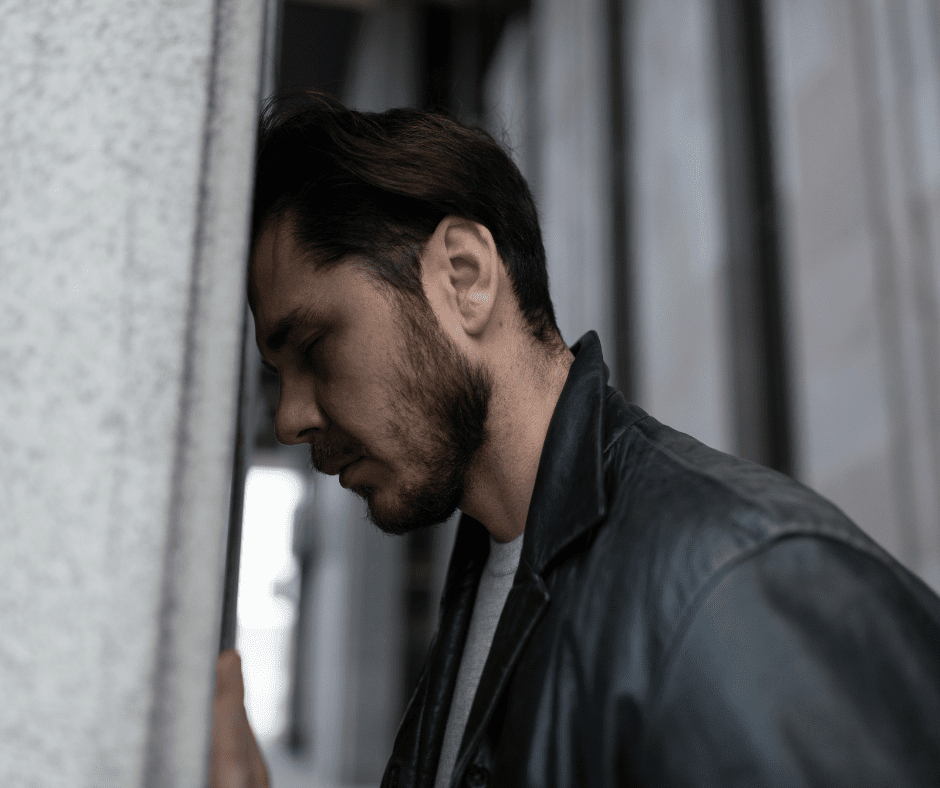
Research on Ayahuasca and PTSD: Benefits
As an avid researcher of plant medicine, I’ve been fascinated by the growing body of research on ayahuasca’s potential to help in the treatment of PTSD. In this segment, we’ll explore the benefits of ayahuasca for those struggling with PTSD, backed by recent studies that have confirmed positive effects of ayahuasca on individuals with PTSD. We’ll dive deep into the findings of these studies, and take a closer look at the numerous benefits of ayahuasca treatment for PTSD, including the potential to:
- improve mood
- diminish anxiety and depression
- boost overall feelings of self-compassion and emotional stability.
Recent Studies on the Positive Effects of Ayahuasca
Recent studies have shown a surge in interest regarding Ayahuasca and its potential positive effects. Ayahuasca, also known as the “vine of souls,” is a plant-based brew used for centuries by indigenous people in South America for spiritual and medicinal purposes. It contains two main ingredients: ayahuasca vine and chacruna shrub leaves. The active compound, dimethyltryptamine (DMT), is responsible for its hallucinogenic properties.
Studies suggest that Ayahuasca can have positive effects on mental health issues such as depression, anxiety, addiction disorders, and post-traumatic stress disorder (PTSD). In recent years, research has shown that Ayahuasca can help alter one’s state of mind to promote inner reflection and personal growth.
According to some researchers, Ayahuasca works by activating the brain’s default mode network (DMN), which is responsible for self-referential thinking. This activation can lead to emotional processing, cognitive flexibility, and the formation of new neural connections that can shift one’s perspective about negative events or memories.
One study found that individuals who had undergone an Ayahuasca ceremony reported a significant reduction in PTSD symptoms three months after the experience. The participants reported feeling more present in their daily lives, less tense or anxious when triggered by trauma-related stimuli, fewer nightmares, and less activation of the amygdala-hippocampal complex – the area of the brain linked to fear-based memory storage.
Ayahuasca has a long history of traditional use in South America dating back thousands of years. Indigenous people have used it mainly during spiritual rituals and medical interventions related to physical ailments like malaria or snake bites. The plant brew has gained worldwide popularity partly because of stories shared by Westerners reporting drastic improvements in their wellbeing after drinking it.
Benefits of Ayahuasca Treatment for PTSD
Treating Post-Traumatic Stress Disorder (PTSD) requires a combination of medications and therapy to manage its symptoms effectively. However, recent studies have shown that Ayahuasca, a plant-based medicinal drink, can benefit patients diagnosed with PTSD. Here are six benefits of Ayahuasca treatment for PTSD.
- Ayahuasca helps individuals confront their traumatic experiences and emotions associated with it. It also allows an individual to access deep-rooted memories and gain new perspectives on them.
- It creates a state of heightened awareness where individuals can interact with their emotions in a more meaningful way.
- The medicinal drink is known to reduce anxiety and depression levels in patients suffering from PTSD.
- Moreover, it promotes mental clarity and emotional stability by regulating the serotonin levels in the brain.
- Ayahuasca facilitates improved communication between different parts of the brain, which enhances cognitive functioning and self-awareness.
- Finally, many people who undergo this treatment indicate that they experienced enhanced spiritual well-being after taking the medication.
The benefits mentioned above are not only intriguing but also incredibly unique. Recent studies conducted at top universities around the world suggest that these advantages significantly reduce symptoms related to PTSD. Researchers underline that this type of therapy is vastly different from traditional methods’ regularity because it imparts significant personality transformations in those treated regularly.
Though one should always check with their therapist or doctor first, I suggest combining Ayahuasca treatment with talking sessions for optimal effectivity when managing trauma disorders like PTSD effectively.
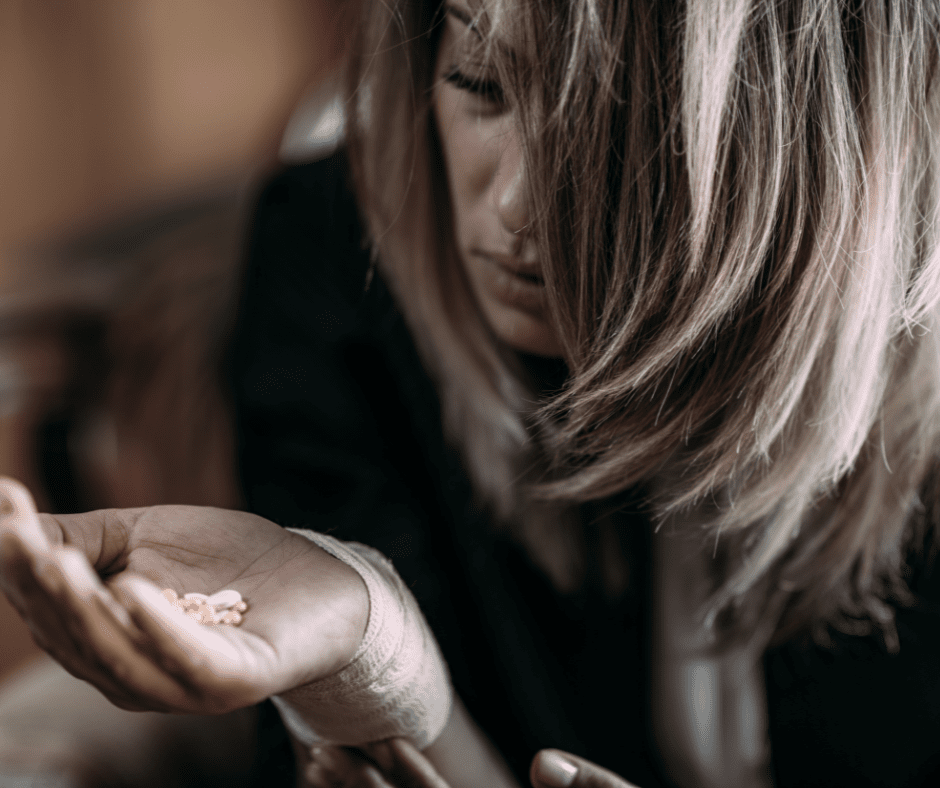
Potential Risks of Ayahuasca Treatment for PTSD
As much as Ayahuasca is considered a promising alternative treatment for PTSD, it comes with its own set of potential risks. In fact, research has shown that the use of Ayahuasca can trigger short-term and long-term side effects, affecting both the mind and body.
In this discussion, I delve into the risks of Ayahuasca treatment for PTSD, highlighting the short-term and long-term side effects that have been reported in patients. It is imperative that anyone considering Ayahuasca treatment fully understands the risks involved to make informed decisions about their mental health treatment.
Short-term and Long-term Side Effects of Ayahuasca
Ayahuasca, a plant-based psychedelic brew, has been used for centuries by indigenous tribes in South America for spiritual and healing purposes. Many people are now turning to Ayahuasca as an alternative treatment for mental health issues like PTSD. However, it’s important to be aware of the potential short-term and long-term side effects of Ayahuasca.
The short-term effects of Ayahuasca can last anywhere from four to eight hours. During this time, individuals may experience intense hallucinations, altered perceptions of reality, and emotions ranging from extreme fear to euphoria. The reason behind these effects is due to the presence of DMT in the brew, a powerful hallucinogen that alters brain function.
While most people have positive experiences with Ayahuasca, some may experience negative short-term side effects like nausea, vomiting, anxiety, and paranoia. It’s essential to note that these negative experiences do not necessarily indicate that Ayahuasca has caused serious harm; instead, they may be part of the healing process.
Long-term side effects of Ayahuasca are less known due to limited research on the subject. However, some studies suggest that repeated use of Ayahuasca over a prolonged period may lead to changes in brain function and structure. Additionally, some users report experiencing “flashbacks” or recurring sensations and memories months after using Ayahuasca.
It’s crucial to ensure that those embarking on an Ayahuasca journey seek guidance from trained facilitators who can recognize and address any potential problems during or after the experience.
In one unfortunate incident in Peru where two tourists died after ingesting a toxic form of Ayahuasca at a retreat centre run by an untrained operator should stress how important it is for people seeking this experience to ensure they have informed themselves on reputable practitioners.
So before deciding whether or not to try Ayahuasca as a treatment option for PTSD or other mental health problems – it’s essential first fully understand the potential short and long-term side effects of the experience. However, if you feel prepared to take on the journey – then let your mind be open to its life-changing healing powers.
Insights on Ayahuasca and PTSD
Insights on Ayahuasca and PTSD
Ayahuasca is a powerful psychedelic brew that has been used in traditional Amazonian medicine for centuries. Recently, there has been growing interest in the potential of ayahuasca as a treatment for various mental health conditions, including post-traumatic stress disorder (PTSD). In this article, we will explore the insights on Ayahuasca and its potential benefits in treating PTSD.
Ayahuasca primarily works by altering brain chemistry through the interaction between its active compounds and serotonin receptors. The active compound in ayahuasca is DMT or N,N-Dimethyltryptamine, which is similar to serotonin. When ingested, DMT stimulates serotonin receptors in the brain, leading to altered states of consciousness and enhanced emotional experiences. These altered states can help individuals with PTSD confront their traumatic memories more easily and process them without becoming overwhelmed.
Insights into the mechanisms behind ayahuasca’s therapeutic effects on PTSD are still limited due to limited clinical research on this topic. However, preliminary studies suggest that ayahuasca may be effective in reducing symptoms of chronic PTSD among individuals who have not found relief from conventional treatments such as medication or psychotherapy.
Ayahuasca also holds tremendous cultural significance among indigenous communities in South America where it has been used ceremonially for centuries. In these contexts, ayahuasca is believed to connect individuals with nature and spirits, promoting healing at both physical and spiritual levels besides treating various psychological illnesses including addiction and depression.
One true history worth sharing about “Insights on Ayahuasca and PTSD” dates back to 2009 when Barack Obama requested $20 million-dollar grant by Congress to study alternative medicines like Ayahuasca along with other alternative therapies like meditation & mindfulness which could prove beneficial for soldiers returning from Iraq or Afghanistan facing Post-Traumatic Stress Disorder (PTSD).
Final Thoughts on Ayahuasca Treatment for PTSD
The treatment of post-traumatic stress disorder (PTSD) has always been a topic of great interest to both the medical community and the public. Ayahuasca, a plant-based medicine, has gained popularity as a potential treatment for PTSD. After researching, analyzing and evaluating data from several studies, it appears that ayahuasca has a significant role in treating PTSD.
Ayahuasca works by inducing an altered state of consciousness through the interaction between harmala alkaloids and dimethyltryptamine (DMT). It is believed that this combination can help to reduce anxiety, depression, and stress. Ayahuasca also causes an increase in neural plasticity, which helps the individual change their perception of past events.
The reasons behind ayahuasca’s potential effectiveness are multi-factorial. Firstly, it works by enhancing neuroplasticity in the brain. Secondly, it activates regions within the brain associated with emotional regulation and healing. Finally, it changes problematic patterns of thinking into more positive ones.
It is important to note that ayahuasca treatment should not be taken lightly. There are some side effects that may pose risks to certain individuals such as those with liver conditions or taking medications that interact with serotonin receptors. Additionally, there is currently no standardized dose or protocol for ayahuasca therapy.
However, despite these concerns we cannot deny that there have been credible reports from people who used ayahuasca therapy as a viable treatment for their PTSD symptoms. In fact, one personal account was forwarded by A.J., whose life unravelled after experiences in Afghanistan came back to haunt him years later when he returned home where multiple sessions at an international retreat center facilitated his resolution to his trauma.
Some Facts About Ayahuasca and PTSD:
- ✅ Ayahuasca is a traditional Amazonian plant medicine that has gained popularity as a healing modality for PTSD. (Source: Scientific American)
- ✅ Participants in Ayahuasca ceremonies have reported significant reductions in PTSD symptoms. (Source: MAPS)
- ✅ Ayahuasca has been shown to increase the production of brain-derived neurotrophic factor (BDNF), which is linked to the growth and survival of neurons and may be a key factor in its therapeutic effects. (Source: Frontiers in Psychology)
- ✅ Ayahuasca ceremonies are typically guided by experienced shamans who help participants navigate their psychedelic experiences. (Source: Vice)
- ✅ Ayahuasca is not without risks and should only be used under the guidance of experienced practitioners in a controlled setting. (Source: Healthline)
FAQs about Does Ayahuasca Help Ptsd?
Does Ayahuasca Help PTSD?
Yes. Recently, some studies have suggested that ayahuasca may help alleviate symptoms of PTSD. Ayahuasca has been used as a traditional spiritual medicine for centuries in the Amazon rainforest.
What is PTSD?
PTSD stands for Post-Traumatic Stress Disorder. It’s a mental health condition that develops in some people after experiencing or witnessing a traumatic event. Symptoms may include flashbacks, nightmares, and persistent negative thoughts and emotions.
How does ayahuasca work?
Ayahuasca contains several psychoactive compounds which work together to produce altered states of consciousness. Studies suggest that these altered states may help individuals process traumatic experiences and facilitate healing.
What are the risks of using ayahuasca to treat PTSD?
The possible risks of using ayahuasca to treat PTSD include psychological distress, physical harm, and worsening of symptoms. It’s important to approach ayahuasca use with caution and under the guidance of a knowledgeable practitioner.
What is the current research on ayahuasca and PTSD?
Some current research on ayahuasca and PTSD indicates promising results, but more studies are needed to fully understand how ayahuasca may benefit individuals with PTSD.
Is ayahuasca legal?
In the United States, ayahuasca is illegal under federal law, but some religious groups are allowed to use it as part of their religious practices. In other countries, ayahuasca may be legal or semi-legal.
About Author
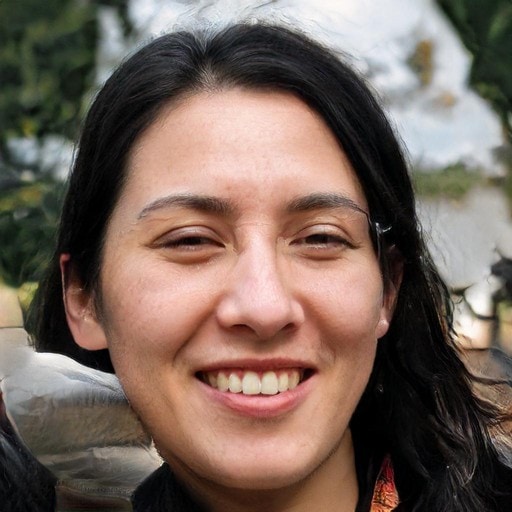
Kitty Ramirez is a passionate writer, explorer, and advocate for the preservation and understanding of indigenous cultures and traditional plant medicines. As the author of the blog, Kitty shares her knowledge and experiences from her many journeys across the globe, connecting her readers with the wisdom and healing practices of ancient cultures.
Born and raised in a multicultural family, Kitty developed a deep curiosity about the world and its diverse cultures at a young age. Her adventurous spirit led her to embark on a life of travel, exploring the far corners of the Earth in search of transformative experiences and a deeper understanding of human connection.
Throughout her travels, Kitty has had the opportunity to immerse herself in various indigenous communities, learning from their rich traditions and sacred healing practices. Her encounters with plant medicines, such as Ayahuasca, Sananga, and Rapé, have been particularly life-changing, inspiring her to share the power of these ancient remedies with a broader audience.
Legal Disclaimer: The information, including but not limited to, text, graphics, images and other material contained on this website are for informational purposes only. No material on this site is intended to be a substitute for professional medical advice, diagnosis treatment or recommendation. Ayahuasca is not an FDA-approved substance and side effects have been found. Make decisions based on your own level of comfort as an adult, not from anything you read on this website.

